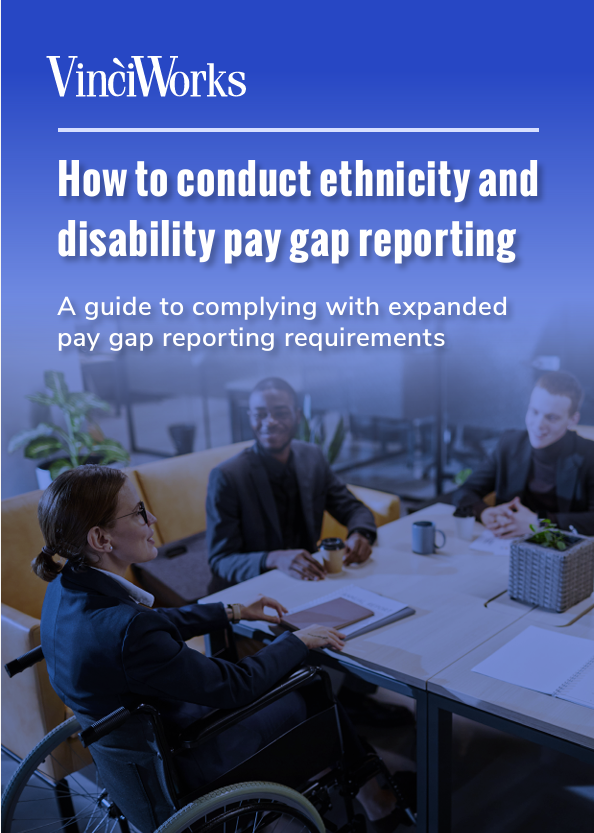Wie Behörden Terrorfinanzierung unterbinden

Terrorfinanzierung stellt eine erhebliche Bedrohung für die globale Sicherheit dar, und Deutschland ist von dieser Bedrohung nicht ausgenommen. Terroristen benötigen finanzielle Mittel, um ihre Operationen zu planen und durchzuführen, Mittäter zu rekrutieren und Propaganda zu verbreiten. Doch wie funktioniert Terrorfinanzierung genau, welche gesetzlichen Rahmenbedingungen gelten in Deutschland zur Verhinderung dieser Aktivitäten, und welche bekannten Fallstudien […]
Release notes: Enhancements to several key features for Astute V3.2.1

VinciWorks is proud to announce the release of Astute LXP Version 3.2.1! This release bring several important enhancements to existing features and performance improvements. Enhancements 1. Admin view of Learner information The activate/deactivate, edit and certificate buttons have been redesigned for usability.
Die KI-Verordnung tritt in Kraft: Was Unternehmen jetzt wissen müssen

In der vergangenen Woche trat die lang erwartete KI-Verordnung der Europäischen Union offiziell in Kraft und markiert damit einen bedeutenden Wendepunkt für Unternehmen, die Künstliche Intelligenz (KI) entwickeln, einsetzen oder nutzen. Die Verordnung, die Teil der umfassenderen EU-Digitalstrategie ist, stellt die weltweit erste regulatorische Rahmenbedingung für KI dar und soll Europa nicht nur als führenden […]
The King’s Speech and Compliance: What do businesses need to know about Labour’s legislative agenda?

Sir Keir Starmer’s first King’s Speech outlined Labour’s most ambitious legislative agenda since 1997 and includes a long list of policy and legislative changes that compliance teams should get ready for. Chiefly among these is the New Deal for Working People, which Labour have pledged to introduce in their first 100 days. This far-reaching employment […]
VinciWorks guide to high risk jurisdictions for money laundering

Last updated: July 2024 The FATF and European Union continually review jurisdictions and identifies those which have strategic deficiencies in their AML/CFT regimes. These are known as the FATF Grey List and high risk jurisdictions under the European Union. Countries are added to the lists several times throughout the year. There are some jurisdictions which […]
Inkrafttreten der EU-KI-Verordnung: Wie Europa das weltweit erste KI-Gesetz verabschiedete

Vergangene Woche trat die EU-KI-Verordnung offiziell in Kraft und markiert damit einen bedeutenden Meilenstein in der Regulierung von Künstlicher Intelligenz (KI) auf globaler Ebene. Hinter der Einigung dieses bahnbrechenden Gesetzes steht ein Stück harter Arbeit in Brüssel; es ist doch das Ergebnis eines intensiven, mehrjährigen Gesetzgebungsprozesses, der weit über die Grenzen Europas hinaus Aufmerksamkeit erregt […]
Citigroup im Fokus: Drogenhändler nutzten Schwachstellen der Bank

In einer kürzlich veröffentlichten Anklageschrift haben hochrangige US-Strafverfolgungsbeamte Citigroup als bevorzugtes Ziel für Drogenhändler identifiziert. So hatten sich Drogenhändler aufgrund der Wahrnehmung, dass die Betrugskontrollen bei Citigroup weniger streng seien als bei anderen Banken, verstärkt auf Citi konzentriert.
VinciWorks guide to ethnicity and disability pay gap reporting

Free download on new pay gap reporting requirements set to be introduced by the Labour government The Labour government have pledged to close not just the gender pay gap, but the disability and ethnicity pay gap too. Legislation to require organisations to report on their ethnicity and disability pay gap is set to be announced […]
UK moves forward on deforestation compliance as the EU takes as step back

The saying goes that elections have consequences, and that’s particularly true for deforestation compliance. The European Parliament elections held at the start of June and the UK general election on 4 July have delivered a reversal of fortunes when it comes to a critical part of ESG – deforestation compliance and reporting.









